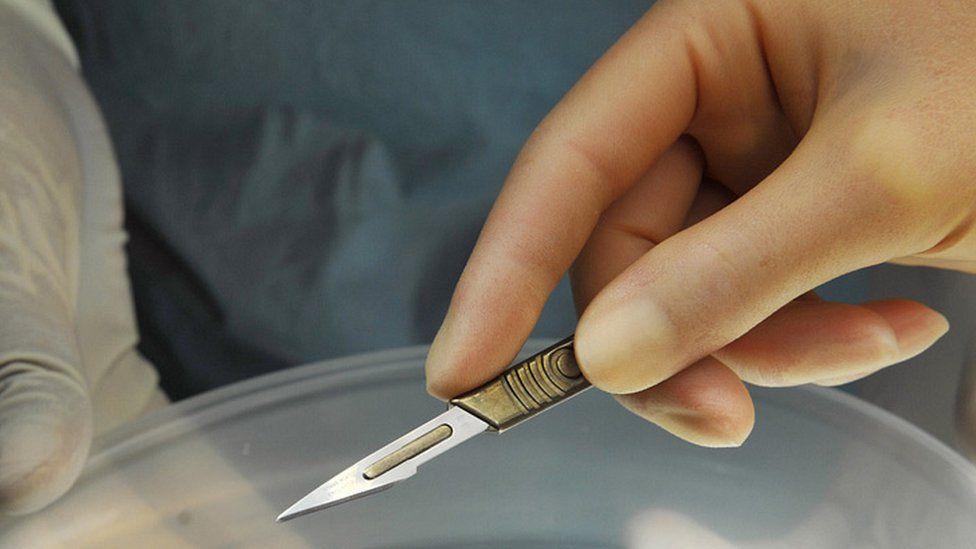Russian clinic in row over female genital cutting
- Published

A Moscow private clinic that carries out female genital cutting is under fire after a news website alleged it had advertised the procedure for girls.
Best Klinik denied the Meduza report, saying its service was "for medical reasons" and only for adult women.
Critics on Russian social media argued the clinic should not offer the procedure at all.
Female genital mutilation (FGM) is legal in Russia but is widely seen as a human rights violation.
The Meduza report triggered heated debate on Russian social media. FGM is a crime in the UK and the UN says it violates human rights.
FGM - defined as partial or total removal of the external female genitalia for non-medical reasons - can cause severe bleeding and other serious complications, the UN's World Health Organization (WHO) says. FGM has no health benefits, the WHO adds.
In its statement, Best Klinik insisted it was providing a "clitoridectomy" service only for women aged 18 or older "in response to requests from patients who have a corresponding referral from a doctor".
The procedures are done at a clinic near Baumanskaya metro, in northern Moscow. Best Klinik also has two other clinics in the Russian capital.
Clitoridectomy - sometimes called "female circumcision" - can be carried out for medical reasons, but such cases are rare.
Read more on FGM:
Caucasus girls 'at risk'
A Russian human rights group, Stichting Justice Initiative (SRJI), documented cases of FGM involving girls in Russia's Dagestan region, in the North Caucasus, in 2016.
The region's Muslim leader, mufti Ismail Berdiyev, said FGM was practised in some Dagestani villages and that it was necessary to curb women's sexuality.
SRJI says human rights lawyers now plan to ask the Russian Prosecutor General's office to investigate Best Klinik.
On Facebook a leading Russian women's rights activist, Alyona Popova, also urged the authorities to investigate the clinic's activities.
A popular sex education blogger, @Tasumori, tweeted that "female circumcision is not equivalent to male circumcision".
"It is equal to castration. The removal of a sex organ. Doesn't sound so mild now, does it?" she wrote.
Best Klinik has not yet responded to a BBC request for clarification about its "clitoridectomy service".
SRJI's 2016 report on Dagestan prompted a Russian MP, Maria Maksakova-Igenbergs, to introduce a bill that would criminalise FGM.
But the bill did not become law, so FGM - which can be fatal - is not yet a crime in Russia.
The WHO says FGM is most common in western, eastern and north-eastern regions of Africa, in parts of the Middle East and Asia, and among migrants from those areas.
It says more than 200 million girls and women alive today have suffered FGM, in 30 countries.
- Published18 August 2016